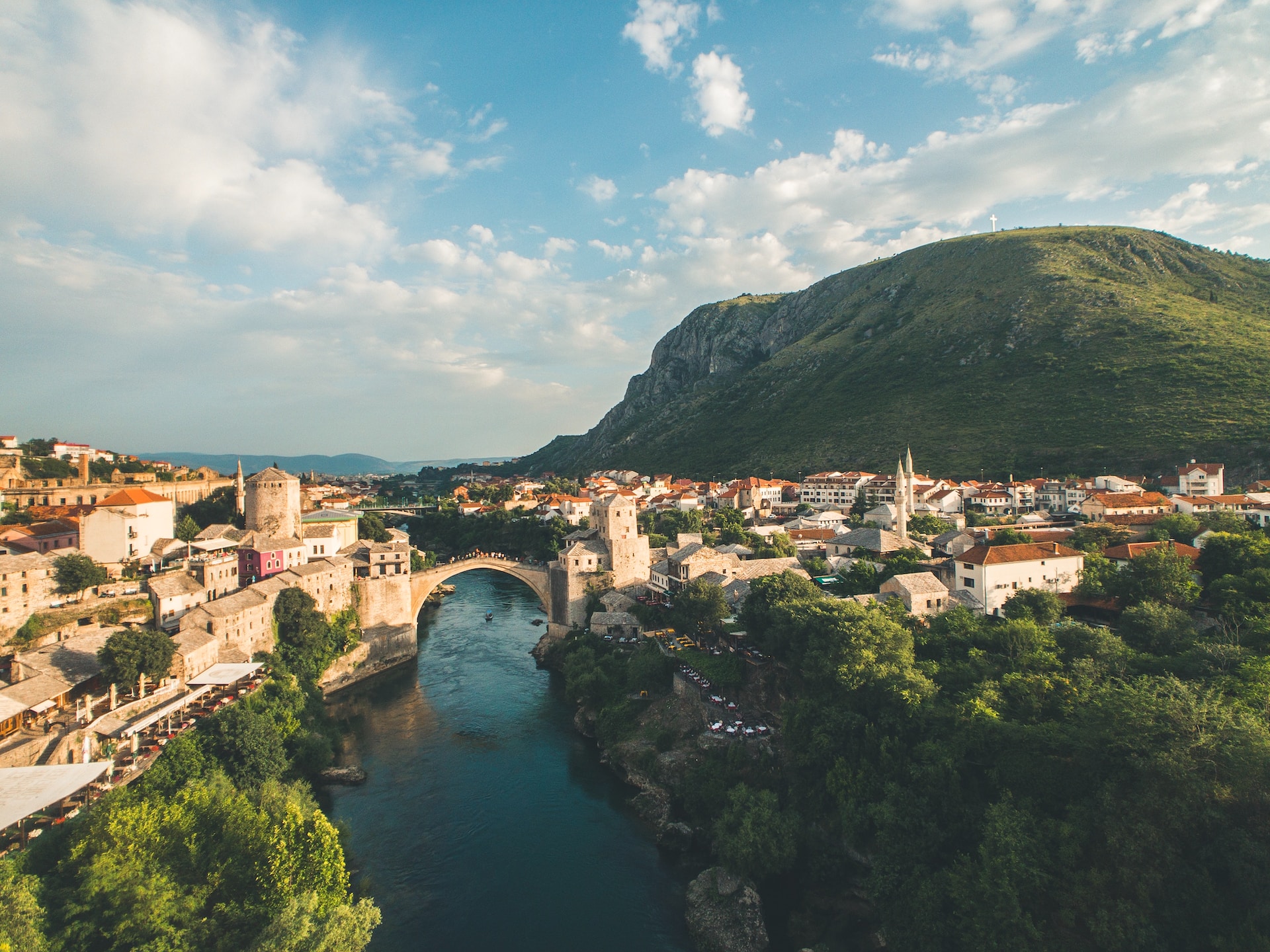Bosnie-Herzégovine
Bien que la violence ait cessé, les ethnies de la BIH occupent toujours une place centrale dans les processus décisionnels du pays.
Groupes Évalués
- Migration transnationale
- Classe
- Ethno-religieux
La Bosnie-Herzégovine (BIH) est un pays du sud-est de l’Europe dont l’histoire est marquée par la violence et l’instabilité entre les groupes. Sa population est diversifiée et se compose de trois groupes ethniques principaux : les Bosniaques, les Serbes et les Croates. Dans les années 1990, la BIH a été le théâtre d’un violent conflit entre ces trois groupes, lequel a duré plusieurs années et causé d’importants dommages et de nombreuses pertes de vies humaines. Après ce conflit, les trois groupes ethniques se sont réunis dans le cadre de l’Accord de paix de Dayton (1995) et ont accepté de partager le pouvoir. Il en résulte ce que l’on appelle un « modèle de consociationalisme » qui garantit que chaque groupe ethnique est représenté au sein du gouvernement. Si ce modèle a permis de maintenir la paix en BIH, ce rapport aborde les sentiments d’identité et d’appartenance nationales collectives et la manière dont ils pourraient être davantage développés. Aujourd’hui, la BIH a progressé sur la voie de la reconstruction et de la réconciliation depuis le conflit, mais elle reste confrontée à de nombreux défis, dont la corruption, les divisions de classe, l’instabilité politique et les politiques inégalitaires qui privilégient certains groupes ethniques au détriment des autres. Cet evaluation été achevée en 2021.
Recommendations
Government
Civil Society
International Actors
